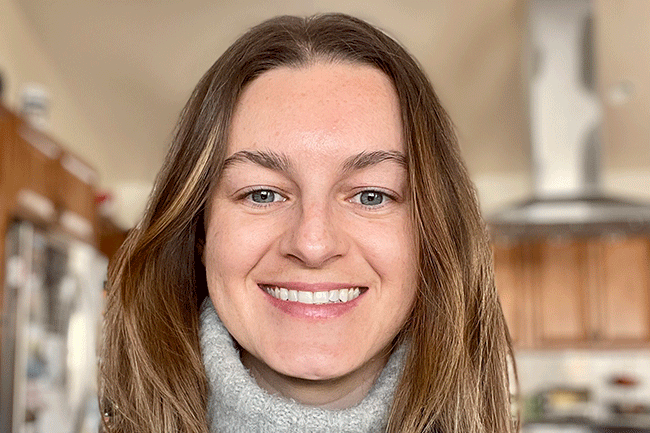Student Spotlight: Teresa’s Shining Armor
Teresa Killen’s journey to WGU was not an easy one and is defined by her bold ability to overcome challenges. Due to a traumatic auto accident in 2008, Teresa suffered physical and brain injuries that left her to navigate expressive and receptive aphasia and dysgraphia. Aphasia and dysgraphia are language disorders characterized by difficulties in speaking and writing, as well as an impaired understanding of spoken and written language.
For years, Teresa struggled to return to work as she battled agoraphobia, anxiety, and conversion disorder as side effects of her accident. Despite it all, Teresa is now pursuing her RN to BSN with WGU as a step toward her career as a psychiatric nurse practitioner and this is her story.
“Not long after I started working again in nursing following my period of disability, I got COVID,” Teresa explained. “For me, it was not a mild illness. I had O2 [saturation levels] in the 80s and feared I would not actually make it through.” Teresa fell back into my old patterns of agoraphobia and didn't leave the house for a period of about three months, not because of quarantine, but of the fear that she might die if she caught the virus again. “This took me a year to work through, but in the end, I felt a calling to help others, and it was louder than my fear and desire to stay home,” she said.
Teresa is now pursuing her dreams of helping others “find their way back from crippling mental illness, take back their potential, and become everything they are meant to be” as a WGU student.
In her forthcoming memoir, "My Shining Armor," Teresa reveals more about her journey back from her brain injury and mental illness. She shares that the most difficult part of her recovery was finally accepting that what she was struggling with was perhaps no longer a physical illness but a mental one. The stigma surrounding psychological diseases made it difficult for her to accept some of her physical symptoms were psychological. She stresses in her book that we, as a collective society, "must look at a psychological illness that yields physical pain the same way as any other painful condition, such as Multiple Sclerosis. Whether the diagnosis is physical or psychological, the symptoms, weakness, and pain are the same and yield the same effect, a human unable to function fully.”
At WGU, Teresa has found a supportive and accepting community that acknowledges her history of disabling agoraphobia and generalized anxiety disorder. She feels encouraged by the people she has met in the enrollment process and believes that WGU is inclusive of all types of students and differences in abilities.
Teresa feels that WGU is an excellent choice for those who want to continue working while completing their degree. “Additionally, I feel that going at your own pace really favors anyone with a disability,” said Teresa. “The support offered by the faculty structure is also amazing for assisting you in reaching your goals.”
Mental illness is complex and can affect anyone, regardless of background or circumstances. While it may be intimidating to seek help or difficult to think of ways to support the people in your life experiencing mental distress, it's essential to remember that psychological illnesses require just as much care and healing as physical injuries. By engaging in mental health and promoting acceptance and understanding, we can help create a more inclusive and supportive community for everyone.


